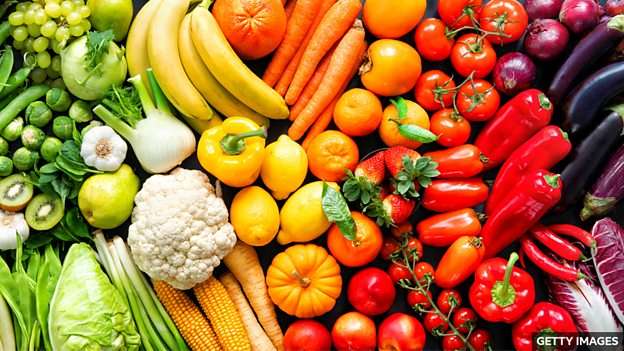内容简介
你是否好奇过,“skin” 和 “peel” 这两个单词在作动词表示 “剥皮、削皮” 和作名词表示 “果蔬皮” 时的区别都是什么?英语中 “削土豆” 应该是 “skin a potato” 还是 “peel a potato”?“香蕉皮” 是 “banana skin” 还是 “banana peel”?本期节目就来讲解如何准确地使用 “skin” 和 “peel”。
文字稿
(关于台词的备注: 请注意这不是广播节目的逐字稿件。本文稿可能没有体现录制、编辑过程中对节目做出的改变。)
Buli
大家好,欢迎收听 BBC 英语教学的 “你问我答” 节目。I'm Buli.
Phil
And I'm Phil. We have a question from one of our listeners.
Question
BBC 英语教学,您好。平时吃水果时都需要剥皮、削皮,经查字典,可以用 “peel” 和 “skin”,这两个单词既可以做动词也可以做名词。请问,要表达苹果皮、橘子皮、香蕉皮等时,“peel” 和 “skin” 做名词应该如何正确使用?做动词时,表达 “剥皮” 又该如何区分并正确使用呢?谢谢!
Phil
This is a great question – there are two parts, and the first one is much simpler, so let's start there!
Buli
这位观众的问题可以被分为两部分。第一部分是 “skin” 和 “peel” 在用作动词时,应如何区分,第二部分则是这两个词在作名词时又该如何正确使用。Phil,你为什么说第一个问题更加简单呢?
Phil
Well, the answer to this is that we don't really use 'skin' that often to mean removing the skin of fruit and vegetables. 'Skin' is much more commonly used as a verb with animals – and it's the process where a butcher removes the skin of an animal before preparing the meat.
Buli
也就是说,“skin” 作动词时的意思 “剥皮” 通常是指 “肉铺或猎人剥掉动物的毛皮”。而当我们要 “剥开” 或 “削去” 水果和蔬菜的表皮时,则需要使用 “peel” 这个词。一起来听例句吧。
Examples
Peel the potatoes before frying them.
(在炸土豆前先削皮。)
The pears were peeled and placed on top of the cake.
(削了皮的梨放在了蛋糕上。)
I never eat oranges without peeling them.
(我从来不会不剥皮就吃橘子。)
Buli
从上面的例句我们可以看出,“peel” 作为动词时可以表达为果蔬 “去皮” 的动作,并且 “peel” 不但可以表示 “用手剥开”,也可以表示 “用水果刀等工具削皮”。
Phil
So that's the verb – the noun is a little bit more complicated. On one level, 'peel' and 'skin' are synonyms – so they will often be used interchangeably. However, there are some patterns that might be useful.
Buli
在用作名词时,这两个词要区分起来更加困难,因为很多时候它们都是可以互换使用的,但我们依然可以通过人们的习惯来区分这两个词。比如英语中更习惯用 “peel” 来表示 “已经剥开或削下来的果蔬皮”。请听例句。
Examples
Make sure you put the potato peel in the kitchen bin.
(一定要把土豆皮放到了厨余垃圾桶里。)
Potatoes often have more flavour if you cook them in their skins.
(做土豆时如果不去皮,土豆味道会更好。)
You can use orange peel to make marmalade.
(你可以利用橘子皮来制作橘子果酱。)
Phil
Just be careful because this is a pattern rather than a definite rule.
Buli
是的。虽然用 “peel” 表示 “已经剥开或削好的果蔬皮” 是一种语言习惯,但并非是一种固定用法。在指不同状态的 “果蔬皮” 时人们依然可能使用 “skin” 或 “peel” 中的任意一个词。类似的语言习惯还有常用 “peel” 来表示较厚的 “水果或蔬菜表皮”。
Phil
This is true about citrus fruit. We are more likely to talk about orange, lemon, or grapefruit 'peel', rather than 'skin'.
Buli
英国人常用 “peel” 来表示 “(柑橘科植物较厚的)果皮”,比如:“lemon peel(柠檬皮)”,“orange peel(橘子皮)” 和 “grapefruit peel(柚子皮)”。“Skin” 则更多被用来表示 “(苹果皮和桃子皮等较薄的)表皮”。一起来听下面三个例句。
Examples
This orange has got really thick peel. I can't get into it!
(这个橘子的皮太厚了,我剥都剥不开!)
I hate it when apple skin gets stuck between your teeth.
(我讨厌被苹果皮塞牙缝。)
Peach skin has an interesting texture.
(桃子皮的质感很有意思。)
Buli
虽然上面的例子中用 “peel” 指 “厚皮”,“skin” 指 “薄皮” 是较为常见的用法,在这里还是要再次提醒大家,“skin” 和 “peel” 作名词指 “水果和蔬菜的表皮” 时是可以互换使用的,只是按照语言习惯使用更加准确,并且易于记忆。
最后,这位听众的问题中还提到了 “香蕉皮” 该用哪个词。Phil, what's your take on this question?
Phil
There could be a regional variation here – 'banana peel' may be more common in American varieties of English, while 'banana skin' may be more common in British varieties of English.
Buli
嗯,原来如此。“香蕉皮” 在美式英语中对应的说法是 “banana peel”。而在英国,人们则更习惯称之为 “banana skin”。
Phil
Hopefully, we've answered your question. If you have a question that you'd like us to answer, you can email us too at: questions.chinaelt@bbc.co.uk
Buli
你也可以通过微博私信的方式向我们提问。我们的微博账号是 “BBC英语教学”。Bye.
Phil
Bye.

